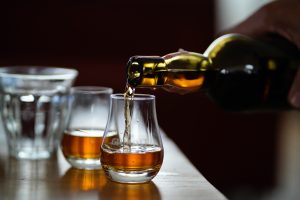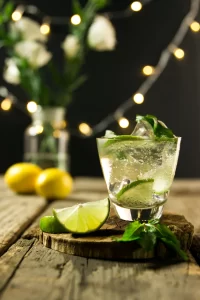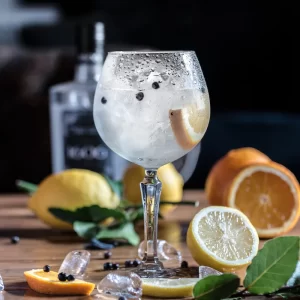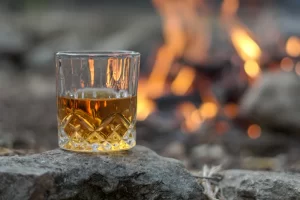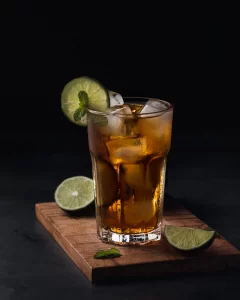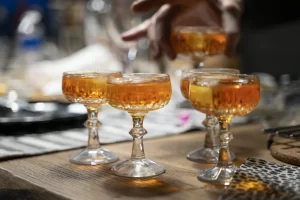West Virginia Liquor Laws And Regulations
West Virginia is probably one of the most relaxed states for their liquor laws and regulations. Their alcohol laws are by far more complicated on paper than they are in practice, owing to the provision of the state constitution and the term ‘workarounds’.
West Virginia is probably one of the best states to live in for easy-going liquor laws.
If you are wondering why they are so easy and relaxed, and what makes West Virginia so ideal to so many manufacturers, let us delve into the details and tell you what the West Virginia law has to say about alcohol!
The Constitution
The state constitution in West Virginia, Article VI, Section 46 was passed to repeal prohibition in 1934, which prohibits the consumption of intoxication liquors in a saloon or other public place.
Retail Beer & Wine Sales
In West Virginia, beer has been available in general and privately owned retail stores since 1934. However, wine was transferred from ABC state-owned stores system to private sales in 1981 through H.B 1111.
Retail Liquor Sales
Before 1990, liquor would only be able to be sold in a state-owned store system, which was known as ‘ABC stores’. That year, the state ended up withdrawing the retail liquor business and decided to auction off permits to private businesses instead who would then operate as agents of the state.
In some smaller West Virginia counties, a local monopoly was provided for, with around one agent per area. However, in much larger counties, there would be multiple competing agencies.
Agencies will be re-bid every decade, and in the 2010 bid, the state saw the following agencies granted.
- Rite-Aid: 42 agencies.
- CVS: 9 agencies.
- 7-Eleven: 20 agencies.
- Sam’s Club: 2 agencies.
- Kroger: 1 agency.
- Par Mar Stores: 1 agency.
- Private convenience stores: 31 agencies.
- Private alcohol & tobacco stores: 14 agencies.
- Private grocery stores: 7 agencies.
- Private souvenir shop: 1 agency.
- Private, stand-alone, liquor-only stores: 40 agencies.
ABV% Cap Raised
Before July 2009, non-intoxicating beer was seen as being all malt beverages that had between 0.5% and 6% ABV. This meant that any beer sold in West Virginia could not contain any more than 6% ABV.
This ended up essentially eliminating around ⅔ of all beer that was produced worldwide from being purchasable by anyone in West Virginia.
Then in 2005, there were attempts to raise this limit so that the market could be opened up to world-class beers which would have otherwise been illegal to purchase.
The West Virginia Beer Wholesalers Association were originally opposed to changing this law, believing it could cause her rates of DUIs and underage drinking, however, this was proven not to be the case, and in 2009, their stance on the subject changed.
The Craft Beer Bill was passed and the definition of non-intoxication beer was changed to 0.5% to 12% ABV. This bill was passed in July 2009.
Cross-Border Issues
Now that West Virginia’s laws are less restrictive than many of its neighboring states, the state benefits from making sales to border residents, especially those on the southern side of their border with Kentucky.
This is because Kentucky has a few dry counties. Similarly, Huntington benefits from Lawrence County, Ohio, and mineral County from Allegany County, Maryland for the same reasons.
Manufacturing Licenses & Regulations
West Virginia offers licenses to run distilleries or even micro-distilleries. Different licenses have to be requested to legally manufacture spirits in this state, however.
Note that state requirements need to be met.
You have to submit a request to have a license to manufacture spirits in West Virginia, this is known as the TTB 5110,41 Basic Permit. However, this license will only allow you to produce spirits.
Additionally, you would need to have a license for the distilling equipment and distillery itself, which is a TTB 5100.24 Distilled spirit plant permit.
Possession Stills & Moonshine
If you were to unlawfully operate, own, or maintain a plant for the manufacturing of distilled spirits, or were to aid or abet in the operation of a plant like such this is considered a felony, and fined for this can range from $100 to $1,000.
West Virginia Liquor Laws And Regulations For Distilleries

There are many associated laws and regulations for distilleries, however, it is worth noting the following:
- Licenses are issued on annual basis’, and licenses should be on display in a prominent position on the location.
- Licensed distilleries in West Virginia will assign a limitation on retail outlet numbers to make up for limited retail sales off-premises and consumption of only their own manufactured liquors.
- Only one license can be issued to a single person or entity, no person can hold a combination of licenses.
- A distillery cannot be licensed as a tavern, club, or wine restaurant.
- Follow the receipt of an application for a distillery license containing additional information as may be required, an investigation may be conducted to ensure that the applicant is qualified to receive the license.
More information may be required to review a specific application.
- No distilleries can be near churches or schools, they cannot be within 100 feet of these buildings.
- Distillery applicants cannot make any misrepresentations, falsifications, or omit any facts in the application, this would be considered grounds for unsuitability.
- Distilleries need to provide a federal tax stamp, federal registrations, and federal licensure approval to the Commissioner for reviewing.
- Distilleries licenses are non-transferable however, with Commissioner permission the location of the business can be changed.
- The Commissioner can refuse to issue a distillery if they find any of the following
- An unsuitable applicant.
- The location occupied is not suitable.
- A large number of licenses have been issued in the areas where the location is.
Associated Fees
License fees for a distillery license in W.V. is $1,500, however, a mini-distillery license fee is only $50, whereas micro-distillery licensing fees are $750 and licensed representative license fees are $100 per distillery or manufacturer for the licensed period.
Overall
West Virginia is a very easy state to acquire a distillery license and is one of the easiest states in which to conduct any business concerning alcohol. However, always make sure that you have submitted your application carefully when doing so.
West Virginia is an ideal state for those in the business of alcohol sales or distilling as their laws have changed enough that in recent decades that alcohol consumption is freer than in many other states.
